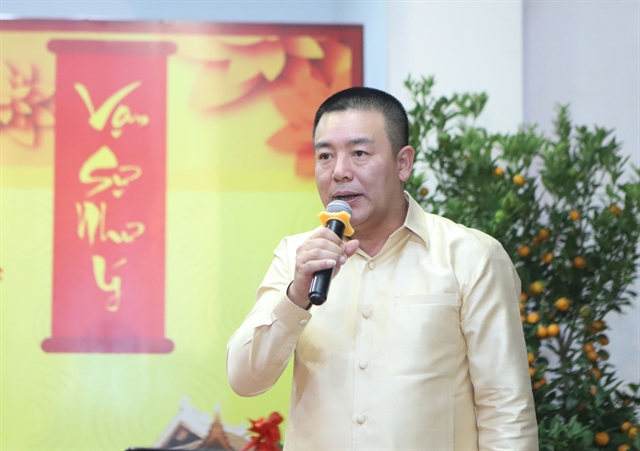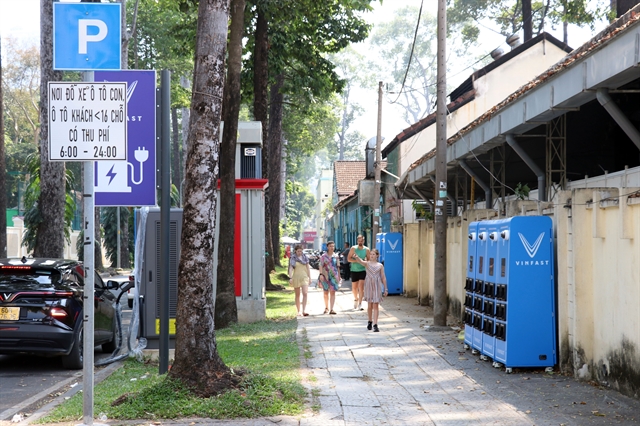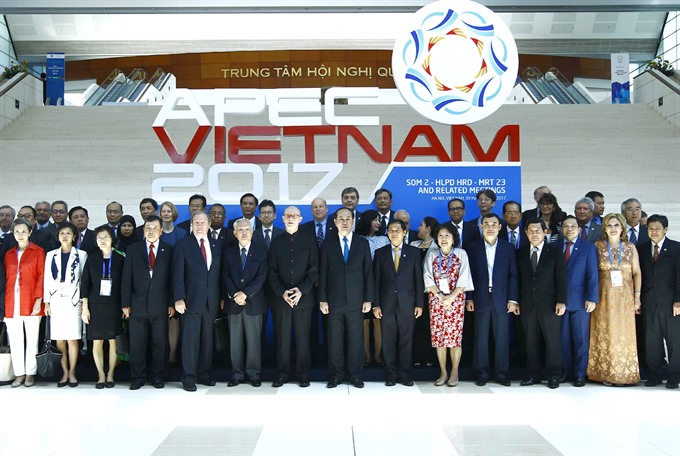 Politics & Law
Politics & Law

Delegates attending the Multi-Stakeholder Dialogue on APEC Toward 2020 and Beyond agreed that APEC should promote its strengths including flexible, voluntary, and non-compulsory co-operation mechanisms to accelerate trade and investment.
 |
| President Trần Đại Quang (eighth from the right) poses for a photo with delegates attending the Multi-Stakeholder Dialogue on APEC Toward 2020 and Beyond yesterday in Hà Nội. – VNA/VNS Photo An Đăng |
HÀ NỘI - Delegates attending the Multi-Stakeholder Dialogue on APEC Toward 2020 and Beyond agreed that APEC should promote its strengths including flexible, voluntary, and non-compulsory co-operation mechanisms to accelerate trade and investment.
In today’s context, APEC co-operation must focus on sustainable and inclusive development and benefits gained from such co-operation must be better spread.
The one-day dialogue discussed various issues related to APEC’s accelerated efforts to achieve the Bogor Goals; a revised Bogor, Bogor Plus, or new set of goals; the pillars of co-operation and the role of APEC in the post-2020 era; and stakeholders’ contribution to developing the vision.
The dialogue put forward numerous ideas for directing APEC co-operation in the future, a press release said.
The outcomes will be reported to APEC senior officials during the SOM2 today and tomorrow before they are submitted to APEC ministers and leaders later this year in Đà Nẵng.
Over the course of 28 years of development, and 23 years of realisation of the Bogor Goals of free and open trade and investment in the region by 2020, APEC has recorded achievements in realising its three key pillars: trade and investment liberalisation, business facilitation, and economical-technical co-operation.
From 2000 to 2015, APEC trade grew 2.5-fold, from US$6.4 trillion to $16.5 trillion; tariffs on average have been slashed by half, from 11 per cent in 1996 down to just 5 per cent in 2015.
Statistics attested to the success of APEC in helping millions out of poverty.
Between 1993 and 2012, more than 800 million people left poverty in APEC whilst extreme poverty fell from 842 million to 139 million people, statistics from the APEC Secretariat’s Policy Support Unit indicated.
“Economic trends point to continued growth in the Asia-Pacific region, but at a moderate pace as economies grapple with low trade and investment performance,” Director of the Policy Support Unit, Dr Denis Hew, said.
“Focus on the long-term benefits of the regional economic integration, including income gains and non-monetary benefits, while cognizant social initiatives are necessary to support those who are disadvantaged,” Dr Hew added.
“We are making efforts to prepare our economies for the global economic-social challenges,” Heath McMichael from Australia’s Department of Foreign Affairs and Trade said.
“We agree about what appropriate objectives for APEC are and perhaps we need to broaden our horizon and look at more inclusive and dynamic growth,” McMichael said.- VNS